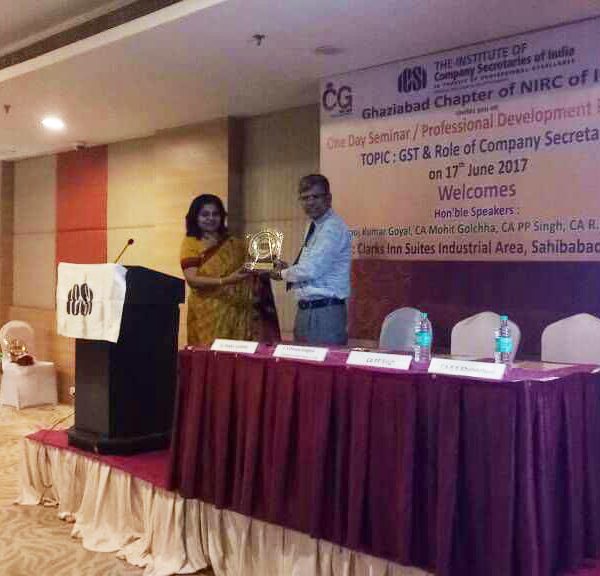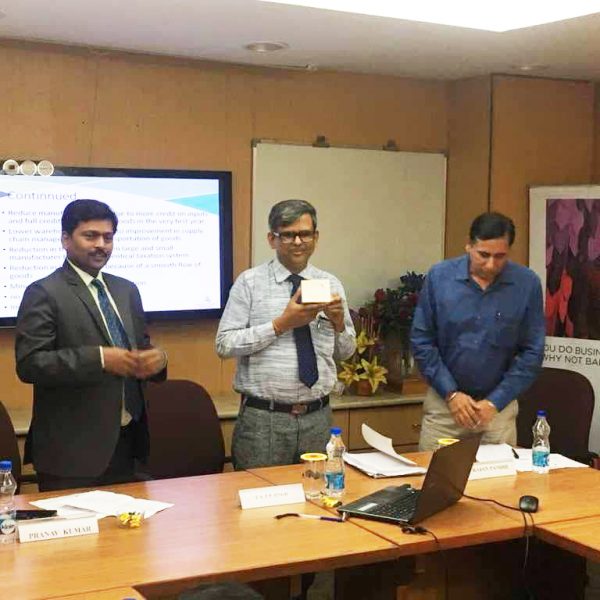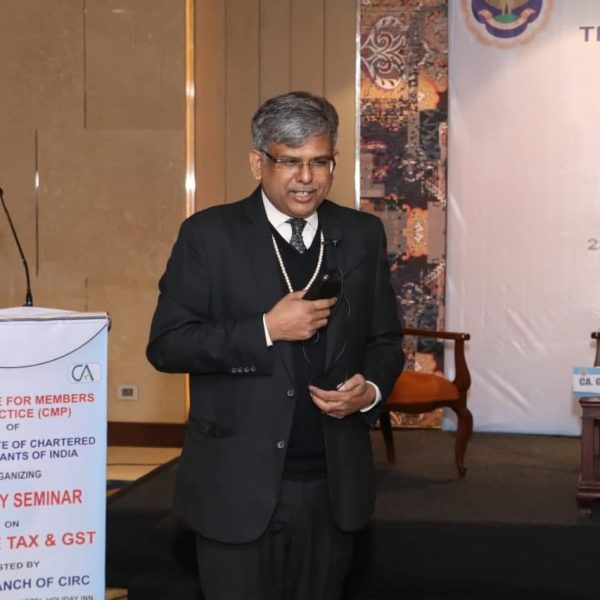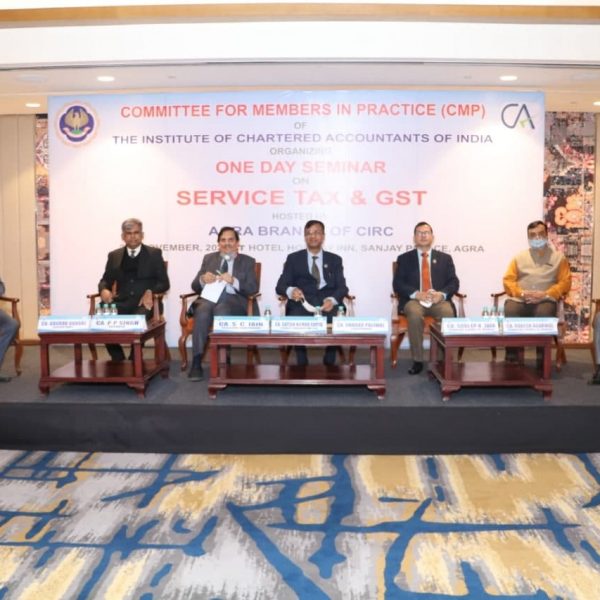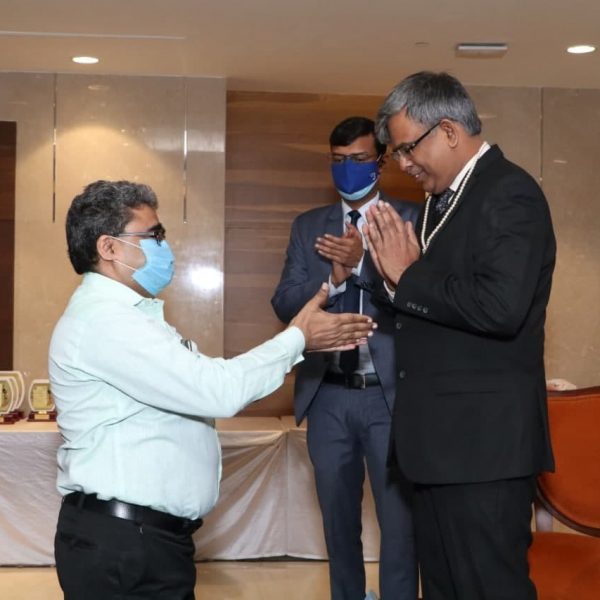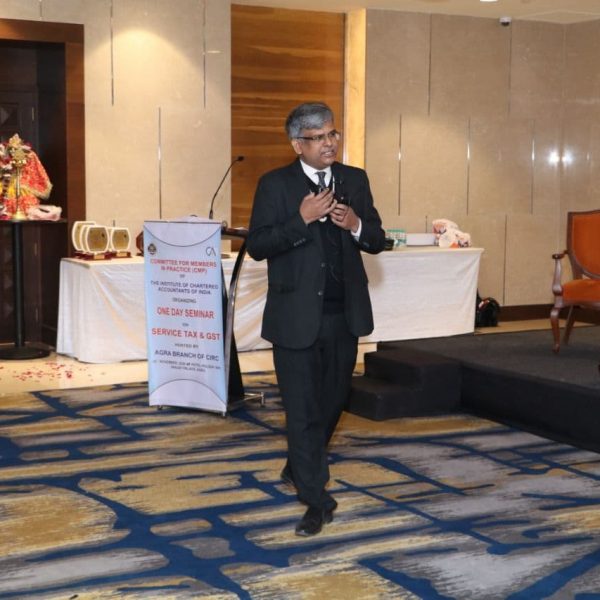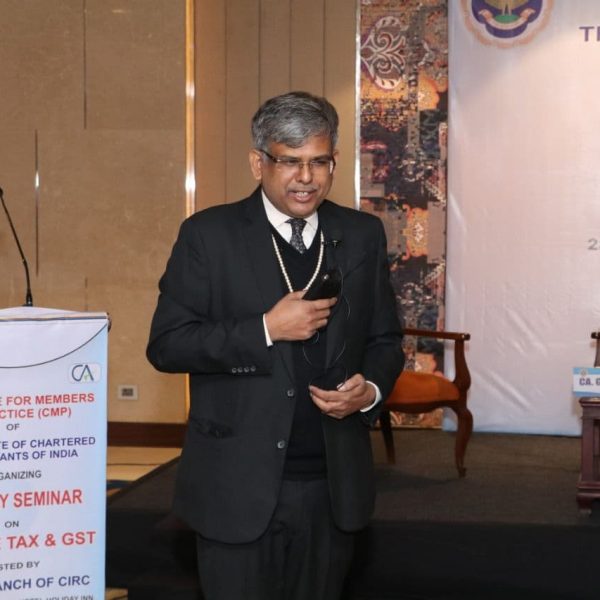Introduction : The 5th Amendment of the U.S. The Constitution lays down inter alia that “no person shall be deprived of his life, liberty or property, without due process of law”. word due means just, fair, proper, reasonable according to Judicial view. In other words, the Court can pronounce whether a law affecting a person’s life, liberty or property is reasonable or not. a court may declare a law invalid if it is not in accordance with its notion of what is just and fair in the Circumstances. Due Process is divided into two basic categories 1) Procedural due Process means reasonable procedure so as to Prevent any arbitrary action of government , its consisting of fair process wherein notice and right of a fair hearing, impartial tribunal and orderly Procedure before taking individuals life, liberty or property. and 2) Substantive due process means substantive Provision of law must be reasonable and not arbitrary. law must advance a legitimate governmental objective. law must be justified on a rational basis. it must be rationally related to a legitimate goal. Due Process applies to both Civil as well as Criminal realm. realm means area of activity, knowledge or interest, domains, sphere. under Due process clause US Supreme count to extend both procedural and Substantive safeguard to life, liberty & Property. on the other hands as per A-21 of the Indian constitutions “No person shall be deprived of his life or personal liberty except according to procedure established by law”. In the Draft Constitution Due process of law was mentioned but while finalizing it was dropped & replaced by word “procedure Established by law”. This was done mainly to avoid the uncertainty surrounding the due process concept in the USA. Judicial decisions in the USA on what was reasonable had not been uniform. Concept of reasonableness varied from Judges to Judges, Statute to Statute, time to time, and subject to subject.
A-K- Gopalan Vs State of Madras (1950) (SC)
facts: Petitioner was a communist leader detained under preventive detention Act, 1950. Here validity of the Preventive Detention Act 1950 was challenged .
Questions for determinations:
- whether the word “law” used in A-21 means enacted law only or That includes the principle of natural Justice.
- can the reasonableness of the law of Preventive detention ought to be Judged under A – 19 ?
- whether the expression ” Procedure established by law” in India empowers the Court to see whether the law fulfills the requisite elements of a reasonable procedure Similar to “Due process of law” in the USA ?
Held:
The rule related to natural Justice is abstract, vague and indefinite and Constitutional law could not be read as laying down a vague standard. Now where in the constitution the word law was used in abstract law or natural Justice. The word law was used in the sense of lex (state made law) and not in the sense of Jus. Therefore Procedure established by law means procedure laid down in the enacted law. But Justice Fazal Ali disagreed with the majority View, and held that the principle of natural Justice that no one Shall be condemned unheard was part of general law of land and same Should be read into A-21.
Petitioner claimed that his detention is illegal as the state has infringed his freedom of movement under A-19 (1) (d) and also violated Personal liberty granted under A-21 Since freedom of movement should be Considered as part of Personal liberty. liberty may be civil , political , commercial , personal etc. Liberty is Qualified with the word Personal, therefore this article is limited to cover only liberty of the physical body such as rights to sleep, eat etc and thus did not include rights given under A-19 (1) relating to or Concerning the person or body of individuals.
A-19 & 21 are mutually exclusive and independent of each other : It was held that A-19 has no application to laws depriving a person life or personal liberty enacted in A-21 because A-19 deals with few Specific freedom mentioned therein but not specifically mentioned freedom from detention whether Punitive or Preventive, whereas A-20 to 22 constituted a comprehensive code and embodied entire Provisions against Life & Personal liberty and not controlled by A-19 it was held that A-19 and A-21 dealt with different Subjects . Thus so long as a long preventive detention satisfies the requirement of A-22 ( protection against arrest and detention in certain cases), it would not be required to meet the challenges of A-19 based on the assumption that each article deals with Specific matter. But the dissenting view of Justice Fazal Ali was that personal liberty must satisfy the requirement of A-19 (1)(d) & 21 ,22 because freedom of movement is essential requisite of personal liberty and therefore reasonableness of preventive detention should be Justiciable unds A-19 (5) .
Conclusion of this case :
- there must be a law
- it should lay down a procedure and
- executives should follow the procedure while depriving a person of his life or personal liberty.
in this case Apex count approach was very Static, mechanical, purely literal and based too much on positivism or imperative theory of law
Kharak singh Vs. state of UP (1963) (SC)
In this case the petitioner was accused of dacoity but released due to lack of evidence against him . UP Police then began Surveillance over him including domiciliary Visit at night. It was held that Term Personal liberty is a compendious(means comprehensive but concise) term and it includes all varieties of rights which go to make personal liberty of a person other than those covered by Article 19. Article 19 deals with particular species of freedom whereas Article 21 is residuary. The word Personal is used only to avoid overlapping between A-21 and 19. In this case, Police regulations authorizing a domiciliary visit of a Private house against bad character was challenged and held violative of Article 21.
Malak singh Vs state of Punjab (1981) (SC): it is duty of the Police officers to keep vigilance over bad characters and habitual offenders for the Purpose of preventing Crime, therefore a person cannot complain against the inclusion of his name in Surveillance register and therefore Section 23 of the Punjab Police Act can be challenged only by person who does not belongs to above category. Such challenge as infringing the right to Privacy of a citizen as a fundamental rights to Personal liberty under Article 21 and freedom of movement under A-19(1) (d)
- C. Cooper Vs. The Union of India (1970) (SC)
Facts: appellant was director in the central bank of India and had shares in the bank of Baroda, Union bank of India, central bank of India and filed a writ petition under Article 32 against violation of fundamental rights due to bank nationalization under the banking companies ( Acquisition and transfer of undertaking) ordinance 1969. Matter of dispute was primarily the amount of compensation in schedule II against Acquisition. Compensation would be decided by agreement and if no agreement reached , the tribunal would decide the compensation to be paid in form of government securities redeemable only after 10 years of failing out of the agreement.
Questions
- Whether a shareholder could file a Writ petition for the violation of his fundamental rights when the company in which he is a shareholder is acquired by the Government?
- Whether the Ordinance in question had been properly made or not?
- Whether the Act was within the jurisdiction of the Parliament to get formulated or not?
- Whether the impugned Act was violative of Article 19(1)(g) and Article 31(2) of the Constitution of India or not?
- Whether the method of ascertaining the compensation was valid or not?
- Whether Schedule II of the Ordinance was justified?
Held : In this case the doctrine of exclusiveness of each fundamental right under different articles was challenged. It was held that though each freedom has different dimensions yet there may be overlapping between different fundamental rights and therefore any argument to interpret personal liberty in A-21 to avoid overlapping between A-21 and A-19 (1) is not a valid argument.
Maneka Gandhi Vs. UOI (1978)(SC): in this case, the Supreme Court has explained the interrelation of A-19,21&14. In this case, the Court overruled the Judgment of A. K Gopalan case and held that A-21 is controlled by A-19 i. e it must satisfy the A-19 requirement. The court held that for a valid law interfering with personal liberty must satisfy a triple test (i) it must satisfy a Prescribed procedure,(li) it must satisfy Article 19, and (iii) it must not infringe Article 14.
Court laid down following proposition in this case:
- A-14,19 & 21 are not mutually exclusive, a nexus has been established between these 3 articles . A law prescribing a Procedure for depriving life or personal liberty has to meet requirement of A-19 and procedure established must answer the requirement of A-14 as well.
- The expression ‘ personal liberty under A-21 was given an expansive interpretation. The expression is of widest amplitude covering a variety of rights which go to Constitute the personal liberty of man. Some of these attributes have raised to the status of distinct fundamental rights and given additional protection under A-19. The attempt of the Court Should be to expand the reach and ambit of fundamental rights. personal liberty makes for the worth of the human Person and travel makes liberty Worthwhile .Right to travel abroad falls under A-21 .
- Procedure can’t be arbitrary, unfair or unreasonable, therefore the court now assumed Power to adjudge the fairness and Justness of procedure established by law to deprive a person of his personal liberty . The court reached this conclusion by holding that A-19,21 and 14 are not mutually exclusive but interlinked. Principle of reasonableness must be projected in the procedure contemplated by A-21 so as to confirm A 14 and remove arbitrariness. law must be reasonable and not any enacted piece. This makes procedure established by law by and large Synonymous with due process of law in the USA.
- Since the right to travel abroad falls under A-21, natural Justice must apply while exercising the power of impounding a passport under the passport Act. Though the Passport Act has no specific Provision, yet the same is implied therein.

